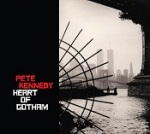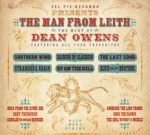 If anyone asks, I’ll always identify as Scottish. In terms of music, it’s a heritage that I tap into. There’s a Celtic feel to many Scottish writers and performers that strikes a chord and I guess it’s because of shared cultural references (it applies to books as well; I love Ian Rankin’s novels, among others). But enough about me; this is all about Dean Owens and his latest album, a greatest hits package titled “The Man from Leith”. Many of the themes of the songs are universal, but there’s also a clear Scottish theme that runs through the album (the title might be a giveaway).
If anyone asks, I’ll always identify as Scottish. In terms of music, it’s a heritage that I tap into. There’s a Celtic feel to many Scottish writers and performers that strikes a chord and I guess it’s because of shared cultural references (it applies to books as well; I love Ian Rankin’s novels, among others). But enough about me; this is all about Dean Owens and his latest album, a greatest hits package titled “The Man from Leith”. Many of the themes of the songs are universal, but there’s also a clear Scottish theme that runs through the album (the title might be a giveaway).
Dean’s been releasing work as a solo artist for about twenty years now and, with a release about every three or four years (not including collaborations and side projects), that’s a substantial back catalogue. Although Dean’s an album, more than a singles, artist, there are still standout songs that have been tried and tested live and are consistently popular. These are the songs that Dean has played solo, as a duo with various guitar players and with various band configurations (with some incredible musicians) and they’ve been thoroughly road-tested; they’re all great songs.
Dean imbues his songs with a very clear sense of place, whether it’s Scotland or the arid desert of Arizona and he loves to tell a story. More than half of the songs on “The Man from Leith” are set in Scotland, particularly Edinburgh (with the obvious exception of “Raining in Glasgow”) and Dean has a genuine appreciation of Scottish songwriters who paved the way for the latest generation and might not be particularly famous outside Scotland (including luminaries like Rab Noakes and Michael Marra).
“The Man from Leith” is seventeen songs spanning Dean’s solo career, demonstrating the range of his songwriting skills from the intensely autobiographical (“Man from Leith” about Dean’s dad and “Baby Fireworks” about his daughter) to the anthemic Ronnie Lane/Ian McLagan tribute “The Last Song”, co-written with Will Kimbrough. If you’re not moved by those songs, your heart is a swinging brick and you shouldn’t even be reading this. And “Lost Time”, which closes the album, is a poignant reminder that we don’t get a second chance at life; make the most of it while you can. In fact the album closes with a run of three songs, “Raining in Glasgow”, “The Last Song” and “Lost Time” that bears comparison with any closing trilogy I’ve heard.
While I’m on the subject of song themes, not all songs are written in the first person; I’ve seen one review of this album get that really badly wrong. Great songwriters pull out themes from their own lives but also the lives of their friends and from stuff that they see on the news or in the papers; don’t make the assumption that everything’s autobiographical, there’s much more to songwriting than that. If you see Dean live, chances are he’ll tell you the stories behind the songs. That’s the best way to get an insight and you’ll probably get a laugh as well; Dean’s songs might be somewhere between melancholy and miserable but he has a wicked, dry sense of humour that you can only appreciate if you see him live.
So, is “The Man from Leith” the best of Dean Owens? It captures the breadth and depth of Dean’s songwriting from the autobiographical “Raining in Glasgow” to the historical WW1 song “Closer to Home” and everything else in between. There isn’t anything even resembling a mediocre song here, and I haven’t even mentioned the award-winning “Southern Wind” (co-written with Will Kimbrough) yet. Die-hard fans might pick out other songs that they think should be included, but this is a pretty good selection. If someone gave me this album and I hadn’t heard any of the songs previously, I’d be really chuffed. Is that good enough for you?
If I’ve met you at a gig, I might have mentioned that “The Last Song” is an absolute anthem; I’m more convinced of that every time I hear it live. Things aren’t looking too good for live music at the moment, but this will certainly give a good impression of what a Dean Owens gig sounds like.
“The Man from Leith” is available on CD and vinyl on Eel Pie Records from 20th March 2020.
It’s not so long since this feature would have been ‘Top Five Singles’, but the concept of a single seems almost irrelevant outside the Radio 1 bubble and my friends in real radio call them ‘lead tracks’ now, so I’m picking my own lead tracks from some of the albums I’ve reviewed this year. These are five songs that grabbed me at the first listen and left me either elated or emotionally drained. If you don’t listen to anything else I’ve recommended, give these a spin; they all come from good or great albums, but they’re standout examples of superb songwriting, performance and production. They aren’t in any particular order, so where do we start?
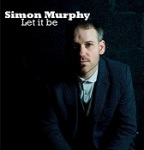 “Not in My Name” – Simon Murphy
“Not in My Name” – Simon Murphy
Simon Murphy’s debut album, “Let it Be”, was released in September of this year and it’s packed with songs that are well-crafted musically and lyrically. “Not in My Name” stands out as one of the simpler songs on the album, but it packs an emotional punch made even more potent by the events of the last few weeks. It could easily be a very angry song, but Simon’s delivery has a much more world-weary feel, hinting at fatigue rather than anger. This is a song that could easily be an anthem but works so well because it doesn’t go down that route.
This is another song from a debut album. Hannah is from Muscle Shoals, Alabama and her stunning debut album, “Razor Wire” is packed with autobiographical, emotive and often harrowing songs; “Parchman” is an exception. It was inspired by a TV documentary about a woman on death row in Mississippi State Penitentiary (or Parchman Farm) awaiting execution for the murder of her abusive husband. For the first time, her life has a structure and she knows how it will end. I won’t pretend it’s an easy listen, but it’s a superb song. When Hannah played it live at Green Note in July, she told the audience the back story and went on to say that she would probably have taken the same way out of the situation; how many of us would say exactly the same?
Pete’s much-anticipated masterpiece “Heart of Gotham” was released this year; the album took about ten years to make as Pete worked on it between various other projects, including albums by The Kennedys, his own guitar album “Tone, Twang and Taste” and work with Nanci Griffith’s Blue Moon Orchestra. The entire album is a fabulous piece of work, and “Union Square”, as the opening song, is a perfect example of Pete’s work. If you can imagine The Byrds fronted by Springsteen, then you probably have a good idea how this sounds. Pete’s crystal-clean guitars contrast beautifully with his rasping vocal delivery as he sings a song packed with literary and historical references to his favourite city. Although the song has an immediate musical impact, each subsequent listen will reveal a lyric that passed you by originally; I can listen to this again and again.
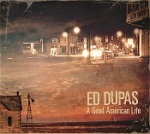 “Flag” – Ed Dupas
“Flag” – Ed Dupas
From the album “A Good American Life”, this is a classic example of a turnaround song (I’m going to admit here that the final two songs will both pull on your heartstrings if you have a heart). Musically, “Flag” is pretty straightforward and the lyrics appear to tell the story of an idyllic American town overlooked by the flag and a hint of patriotism with the refrain ‘red, white and blue till their dying day’. The sting is in the final verse; as soon as Ed sings about the flag being folded, the tone changes and you know that it’s about a dead serviceman and a bereaved family. It still brings a tear to my eye every time I hear it.
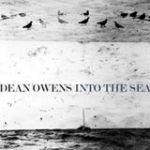 “Sally’s Song (I Dreamed of Michael Marra) – Dean Owens
“Sally’s Song (I Dreamed of Michael Marra) – Dean Owens
Dean’s latest album, “Into the Sea”, is an intensely personal and nostalgic piece of work, looking back to more innocent times and plotting the erratic courses (sometimes happy, sometimes tragic) of old school friends. “Sally’s Song”, over a Pachelbel’s Canon-style backing, uses the demolition of an old housing scheme as a trigger for memories of old friends doing well and badly. It’s a particularly Scottish song, making references to Billy Mackenzie and Michael Marra and it pushes all of my buttons, every time.
I’ve picked out individual tracks from five albums, but, honestly, you should have a listen to all five albums as well.
 It’s always been a bit of a mystery to me why Dean Owens hasn’t been more widely recognised as an outstanding British singer-songwriter. Despite a career with his band The Felsons and several solo albums which provided a couple of classic additions to the Scottish songbook (“Raining in Glasgow” and “Man from Leith”), before the release of his new album “Into the Sea”, Dean still wasn’t widely known, even in Scotland. It looks like this is the album to change that. In the run-up to the album’s release Dean has had well-deserved coverage across the media in Scotland and, to a lesser extent, in England.
It’s always been a bit of a mystery to me why Dean Owens hasn’t been more widely recognised as an outstanding British singer-songwriter. Despite a career with his band The Felsons and several solo albums which provided a couple of classic additions to the Scottish songbook (“Raining in Glasgow” and “Man from Leith”), before the release of his new album “Into the Sea”, Dean still wasn’t widely known, even in Scotland. It looks like this is the album to change that. In the run-up to the album’s release Dean has had well-deserved coverage across the media in Scotland and, to a lesser extent, in England.
Maybe there’s a bit of truth in the cliché about suffering for your art; 2014 was a difficult year for Dean for a variety of reasons but he’s used his work to weave the pain, the joy and the memories into an album packed with songs of love and loss; the stories of the people lost forever and the ones who are lost but still with us. “Into the Sea” is the work of a songwriter with experience of real life looking backwards to help make sense of the present, creating a lasting work of art as a result.
Some of the album’s reminiscences are triggered by objects, while others are triggered by events. The opening track, “Dora” is rooted in a family tree and a circus poster and tells the story of Dean’s grandmother and her circus background; “Closer to Home” was inspired by a letter written by a soldier on the way home from The Great War and “Kids (1979)”, a poignant story of diverging paths, is kicked off by an old photo of a school football team, while “Evergreen” starts from a holiday photo. All four songs are mixtures of happiness and sadness, reflecting the lives that most of us live.
The majority of the album’s songs are inspired by situations; “The Only One” (with Will Kimbrough’s vocal harmonies creating a nice Everly Brothers feel) and “Days Without You” both relate to the terminal illness of a friend’s partner, while “Sally’s Song (I Dreamed of Michael Marra)” combines teenage memories with a tribute to one of Scotland’s greatest songwriters. “Virginia Street” is the story of a friend’s nostalgia for happier days while “Valentine’s Day in New York” is an autobiographical piece dealing with the loneliness of spending time away from loved ones. “It Could be Worse” was the album’s problem child, coming together at the last possible moment with a bit of help from Will Kimbrough and also features as an instrumental reprise. The album’s final song (or special bonus track) is a duet with Suzy Bogguss on “I’m Pretending I Don’t Love You Anymore” featuring a bit of whistling from Dean and a nice Roy Orbison “Blue Bayou” feel.
It’s easy to underestimate the quality of an artist’s work when you see and hear a lot of them (and the Riot Squad have seen and heard a lot of Dean Owens over the last few years) so “Into the Sea”, as the first album of original material since 2012’s “New York Hummingbird” was an opportunity to take a step back and refresh the perspective. The songs tap into a rich seam of melancholy memories which work perfectly for Dean’s voice; the lyrics tug at the heartstrings while the band (Will Kimbrough, Evan Hutchings, Neilson Hubbard, Jen Gunderman, Michael Renne, David Henry, Eamon McLoughlin, Joshua Britt, Suzy Bogguss, Kim Richey and Heather Donegan) provide varied and sympathetic settings throughout. This album, for me, is the most complete and rounded piece of work that Dean Owens has produced and should be a part of any music-lover’s collection.
If you’re in the South of England and you want to see Dean playing songs from the new album, he’ll be playing at these venues in June/July:
Monday June 29 The Greys, Brighton
Wednesday July 1 Green Note, Camden
Thursday July 2 Green Note, Camden
Friday July 3 Venue TBC, Twickenham
Saturday July 4 The Hat Club, Beaconsfield
If you can’t get along to any of these gigs and still want to support Dean, why not have a look at the Kickstarter campaign for the video for his next single “Up on the Hill”? There are loads of ways to contribute and lots of goodies available.
“Into the Sea” is out now on Drumfire Records.
I’m guessing that most of you, unless you’re Scottish or you’ve spent some time in Scotland, won’t even have heard of Michael Marra who died on Tuesday in his hometown of Dundee. Michael was a true free spirit, an original and innovative songwriter who had an uncanny knack of tapping in to the Scottish psyche and who inspired, and was in turn worshipped by, generations of Scottish performers including Pat and Greg Kane, Eddi Reader and Ricky Ross. His songs reflected life in Scotland from the 60s onwards and covered all of the subjects we talk about in the pub; football, politics and religion and all the rest.
I first saw Michael (or Mick as he was known then) playing with the band Skeets Boliver at Dundee University Students’ Association in my first year at university. Skeets were a great live act and played constantly on the Dundee scene in the late 70s. They even secured a record deal with Thunderbird Records, releasing two singles which went unnoticed outside Scotland as punk erupted and swept subtlety aside. When the inevitable Skeets break-up came, Michael secured a two-album deal with Polydor, went to London and recorded the album “The Midas Touch”. Despite critical acclaim, the relationship wasn’t made in heaven. The second album didn’t happen and Michael moved back to Dundee; London’s loss.
The move left Michael free to write songs about subjects he was interested in and to write and sing in a Scottish idiom and accent; just using “wee” instead of “small” can make a huge difference to the way someone hears the song. It was from this point that he found his true voice (I once described Southside Johnny’s voice as “honey poured over gravel”; Michael’s was broken glass poured over gravel, and totally authentic) and wrote his greatest songs. After returning to Dundee, Michael’s reputation as a songwriter grew almost daily as he produced songs which reflected life in contemporary Scotland over a period of nearly thirty years. You can find plenty of examples of Michael’s work on YouTube and I really recommend that you check some of them out. If you want a bit of help, try these: “If Dundee was Africa”, “Chain Up the Swings” and “Mother Glasgow” (Hue and Cry).
Michael had a wicked sense of humour as well, probably developed by dealing with Dundee hecklers over the years. I’ve got a Skeets Boliver live bootleg which features some Marra patter between songs and I loved his routine about the lack of promotion from Thunderbird for the second Skeets single, “Moonlight in Jeopardy”. It went something like: “They put up posters outside all the Tube stations in Dunfermline; and you know how many tubes there are in Dunfermline”.
My thoughts are with Michael’s family; their loss is so much greater than ours. RIP Michael Marra; fans of real songwriting everywhere will miss you.



